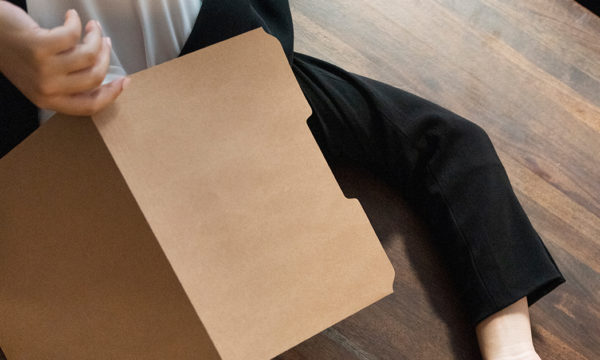
How to Cope With Seasonal Affective Disorder at Work
Seven people share their struggles and how they’re making it through the winter.
When a new year begins, it can feel like everyone at work is brimming with excitement: they’ve hit reset, they’ve set goals, and they’re ready to achieve them. But starting the year on a positive, ambitious note can be much more difficult for people who experience Seasonal Affective Disorder (SAD). This type of depression—also referred to as seasonal depression or winter depression—occurs most commonly in the fall and winter and takes its toll with symptoms like low energy, appetite changes, lost interest in certain activities and feelings of hopelessness, among others. And while the exact cause of SAD is unknown (it’s potentially related to the rise of melatonin and drop of serotonin in the body, both due to decreased sunlight), one thing is clear: It impacts a lot of people. According to Psychology Today, SAD affects an estimated 10 million Americans (in addition to the people who experience mild SAD) and is four times more common in women than in men.
If you have SAD, or aren’t sure if your symptoms are more than a mild case of the “winter blues,” it’s important to speak with a doctor. And in the meantime, know you’re not alone, even when you feel completely surrounded by that “new year, new you” cheer in the office. Ahead, eight people share how seasonal depression impacts them at work and how they cope.
Want more M Dash?
Sign up for our weekly newsletter.
Thank you!
Lizbeth Meredith, 55, Juvenile Probation Supervisor and Writer, Anchorage, Alaska
“Seasonal Affective Disorder catches me unaware every December. By then, the cumulative effect of all-day darkness means I’m more forgetful and lethargic, and my already intense day job feels overwhelming and un-doable. Creativity comes to a screeching halt as I head for bed early and slap the snooze button on my alarm in the morning, losing valuable writing time. The best case scenario means I cut back on sugar and flour and put my grippers on over my shoes and go for a lunch-hour walk while listening to a motivational podcast. My office has almost no natural light, so walking gets my heart rate going, gives me vitamin D, and is a real mood elevator. I also take vitamin D supplements. And above all, when my thoughts get as dark as the sky, I remind myself that soon, the light will come.”
Kay Allison, 60, Co-Founder of Farm & Oven Snacks, Boulder, Colorado
“For me, SAD is a severe case of the winter blues. I’m so lethargic, and my thoughts feel like they’re swimming through molasses. I’m not very quick to understand issues or generate new ideas (and as an entrepreneur, this is my job); I procrastinate on returning emails or calls. A lot of my job is to be active on social media and selling to retail chains. For that, I need to be energetic and upbeat. When I’m deeply into my seasonal depression, I’m dull, not sparkly.
To bolster my mood during the darker days, I use a light box every morning from mid-September through mid-April. I start with a few minutes a day, working my way up to 20 minutes a day in the dead of winter. I go to therapy every week. If I’m particularly teary, my therapist will suggest adding some time to the light box or changing the level of the medications and supplements I take to even my mood out. And I am very careful to get eight hours of sleep a night.”

Shop This Look
Marissa Miller, 28, Freelance Journalist and Editor, Montreal, Québec, Canada
“As a freelance writer, I often let myself go several days without leaving the house or communicating with anyone but my cats, and I slowly and insidiously develop this need not to exist because my life feels meaningless. I’ll take random naps in the middle of the day when sources or editors are trying to get a hold of me, and I feel so guilty and sad about it that it makes me want to nap even more, creating this endless loop of sleep and shame.
To combat the symptoms of seasonal depression, I find excuses to leave the house—I found a community of like-minded folks at my spinning and yoga studios, and they hold me accountable to show up. I check in with fellow freelancers to commiserate, because misery loves company (but also feeds off of it, so I’ve got to be careful). My husband, a freelance journalist with superior mental health hygiene, has been really good about scheduling weekly date nights. At first, I often don’t want to go, but I end up having fun. He reminds me that I frequently put my job before our marriage, and that scares me shitless. Depression plays tricks on my brain and skews my priorities, so it’s important I succumb to someone with a better perspective. What I would remind anyone with seasonal depression is that it’s not your fault you feel this way, and there’s absolutely no shame in seeking help from a mental health professional or taking medication, should that be what you need.”
Chelsea Hottovy, 33, Brand and Communications Manager, Chicago, IL
“In the winter, I have increased anxiety, a vague feeling of apathy, increased irritability, and a general restlessness about things. I am constantly fatigued. My company is social and collaborative, and I have to make a conscious effort not to walk around with a black cloud over my head. I also have the option to work remotely, and I have to be incredibly strict with myself on those days so that I don’t get distracted or bored and wind up napping on the couch.
I’ve tried loads of different things to cope, and it can feel like what works well on this day won’t do a thing for me on the next, so it’s a constant rotation of little habits and self-life-hacks. My watch has a calming breathing mode, so if I’m feeling stressed out or annoyed, that’s usually my first move. The general apathy means that sometimes I have the attention span of a goldfish, so I’ll make a to-do list, put a 15-to-30-minute timer on, and dedicate myself to one task for that time. When the time is up, I take a lap around the office and then move on to the next task. I’ve started to ask my team to give me a nudge if I’m acting too remote, just to remind me to be a bit more present. This has also helped in letting them know that I’m not being pissy and it’s nothing they’ve done. I have a bad bitches playlist that I listen to when I’m feeling weepy to remind me that I do kick ass. I also try to go to the gym often. It is a regular battle, though, and one thing I’ve learned is to celebrate small wins: I hung out with friends; I exercised, even though I really didn’t want to at first; I got up on Sunday and went grocery shopping before noon. Celebrating these tiny things really makes me focus on the good bits instead of wallowing in the bad ones.”
Abra Belke, 37, Political Consultant at Big Sky Strategies, Spokane, WA and Helena, MT
“I struggle to maintain my productivity during the winter. Even small tasks can feel like a burden when winter seems never-ending, and my depression manifests itself in a procrastination that can negatively impact my work if I don’t stay on top of it. Seasonal depression can be crushing in the Rocky Mountain West. When I’m doing seasonal work in Montana, morning-commute temperatures are often below zero, and the sky is still dark. The only way to overcome seasonal depression is to be kind to myself and keep my morning calendar as light as I can before 10 a.m. That extra time to get up to speed in the morning is critical to having a successful and productive day, because when I over-schedule my mornings—by choice or by necessity—it can feel suffocating.
Telling my boss that there will be days when I need to take a small step back to care for my mental health makes actually asking for those small breaks so much easier. And I always schedule something to look forward to at the end of the week, like brunch with a friend, a movie to watch with my husband, a new book arriving in the mail, or a pedicure. It doesn’t matter what it is; just knowing that there’s something enjoyable on the horizon prevents the weeks from becoming an endless parade of the same grind.”

Mel D'Amato, 34, Trucking Brokerage Account Manager and Project Manager at One Shot Podcast Network, Chicago, IL
“I lose motivation when I leave work and it’s already dark out. My day feels like it has already ended and I feel defeated. I take vitamin D every morning, and that has helped a lot. In the last three years, I finally went to my general practitioner and asked for medication. When I was young, I was diagnosed with chronic depression, so I’ve taken meds on and off my entire life. I stopped 12 years ago, saying I would never go back, but sometimes you need the help. I’m glad I started again. It’s been an incredible help.”
S. Nicole Lane, 29, Editorial Associate, Chicago, IL
“As a freelance journalist who also works a full time job at a newspaper, I am constantly working. As a workaholic, I’ve always been very organized and proactive. But when I’m dealing with SAD, I forget deadlines, sleep through my alarm, and feel incredibly absent from the workplace. I have a hard time talking to coworkers or putting myself into social settings within the workplace.
This year, I signed up for a gym over the summer in preparation (I stop exercising in the winter and I can feel how it alters my mood), tried to eat better, started taking vitamins, and set an early alarm to get up hours before work starts. Although I’m not going [to the gym] as much as I would like, it does get me out of the house. I’ve also been better at saying ‘no’ to friends when they ask to hang out when I know that my body needs a rest and I don’t feel well enough to go out into the Chicago winter night. On the other side of that, I make sure that I’m not becoming too much of a recluse; I do try to go out once or twice a week so that I’m not entirely turning inward and shutting people out. Nevertheless, I’m still dealing with seasonal depressive symptoms. [But] I’m lucky to work in alternative media, where I can tell my coworkers and my boss, ‘Hey, I’m depressed and having a down day,’ and no one reprimands me. They are all a supportive group of people.”








